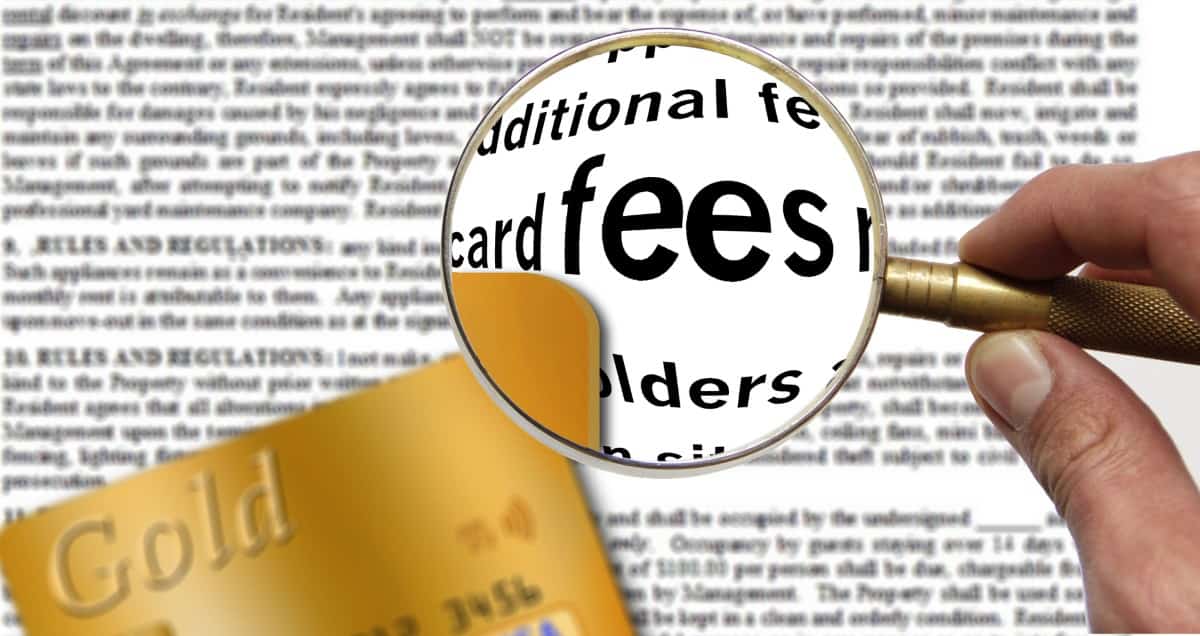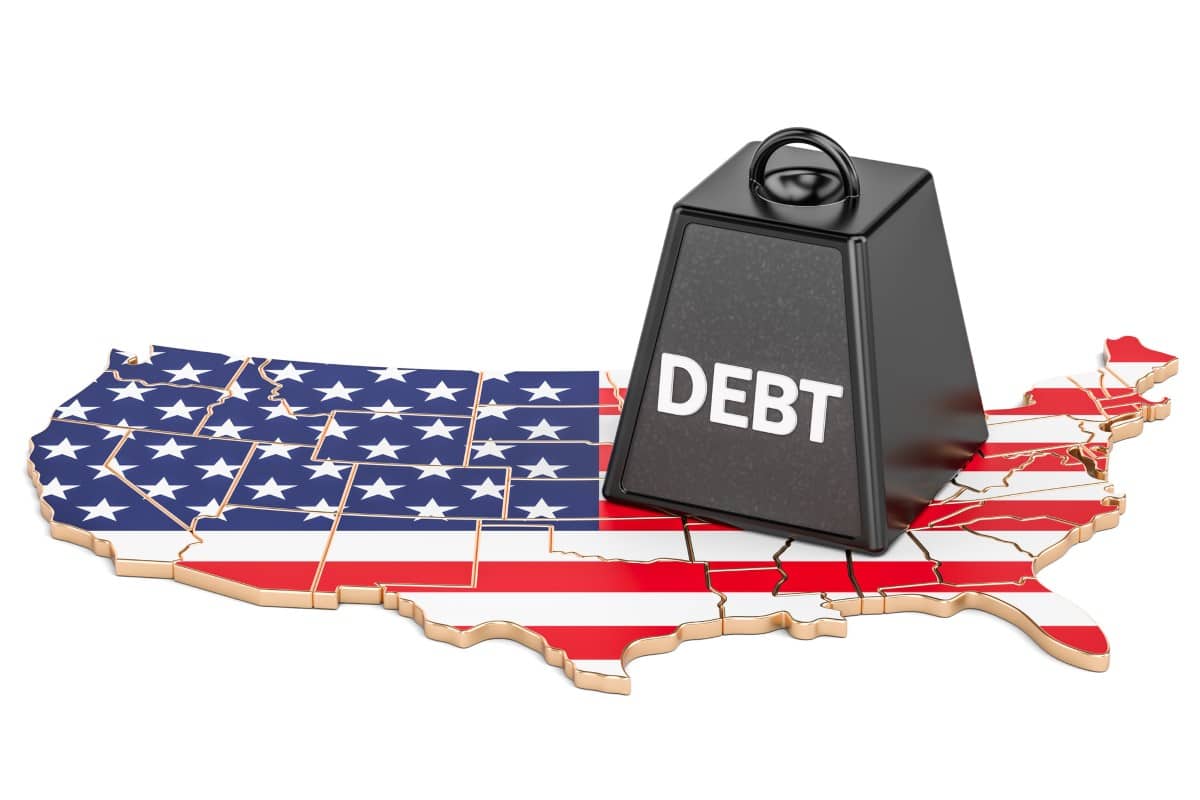Debt Crisis Looms as Record Number of Americans Fear Missing Payments, Reaching Highest Level Since 2020
On Tuesday, March 5th 2024, federal regulators implemented a new rule setting a maximum limit of $8 for most credit card late fees, marking a significant step in the Biden administration’s campaign to abolish unnecessary charges. The implementation of this rule coincides with the ongoing trend of Americans accumulating credit card debt, a figure that has recently surpassed a record-breaking $1.1 trillion.
New Rule to Slash Credit Card Late Fees

The Consumer Financial Protection Bureau (CFPB) projects that the newly enacted regulation, initially suggested in February 2023, will result in annual savings exceeding $10 billion for families by reducing the typical fee from $32.
This regulation targets major credit card issuers, specifically those managing over 1 million accounts. According to the CFPB, these entities account for over 95% of the total credit card debt outstanding.
Regulation to Eliminate Banking Overdraft Fees

The latest effort to tackle credit card fees is part of the White House’s initiative to demonstrate its commitment to assisting families affected by the rising cost of living. Additionally, in January, the CFPB introduced a proposal to limit the excessive overdraft fees levied by major financial institutions. This proposal aims to eliminate an outdated exemption that allows overdraft lending services to bypass the longstanding rules of the Truth in Lending Act and other consumer financial protection laws.
Surging Household Debt

The proposed rules for elimination of junk fees comes against the backdrop of surging household debt. Due to to rising inflation, Americans have been forced to go deeper into debt. Total household debt rose by $212 billion to reach $17.5 trillion in the fourth quarter of 2023, according to the Federal Reserve Bank of New York.
The outstanding credit card balances, currently at $1.13 trillion, increased by $50 billion, marking a 4.6% rise over the prior quarter.
Delinquency Rates Soar Sparking Concern

Credit card balances, mortgage loans, and auto loans are at record-high levels as delinquency rates for most debt types continue to climb, causing concern about the U.S. consumer-driven economy among economists.
On an annualized basis, around 8.5% of credit card balances shifted into delinquency. Serious credit card delinquencies increased across all age groups, particularly among younger borrowers, surpassing pre-pandemic levels.
Balances in other categories, encompassing retail cards and various consumer loans, increased by $25 billion.
Auto Loan Delinquencies Accelerating

Auto loans delinquencies are also increasing.
Auto loan balances continued their upward trend, experiencing a $12 billion increase, and currently stand at $1.61 trillion, maintaining the trajectory observed since the second quarter of 2020.
On an annualized basis, about 8.5% of credit card balances and 7.7% of auto loans became delinquent.
Housing Debt on the Rise

Mortgage balances increased by $112 billion from the previous quarter, reaching $12.25 trillion at the end of 2023.
Americans under financial stress have resorted to using their home equity lines of credit (HELOC), which saw an increase of $11 billion, marking the seventh consecutive quarterly rise since 2022. The aggregate outstanding HELOC balances now amount to $360 billion.
Mortgage delinquency transition rates saw a 0.2 percentage point increase.
Americans Under Increased Financial Stress

“Credit card and auto loan transitions into delinquency are still rising above pre-pandemic levels,” said Wilbert van der Klaauw, economic research advisor at the New York Fed. “This signals increased financial stress, especially among younger and lower-income households.”
Americans are experiencing rising prices in various areas, including purchases made with credit cards, grocery expenses, fuel costs, and other goods. It is plausible that the escalating prices and resulting debt service payments negatively impact borrowers’ financial positions and make it more challenging to meet their financial obligations.
Although the CFPB rules on credit card late fees and bank overdraft fees could provide welcome relief, it’s essential to acknowledge that these measures address the symptoms rather than the root causes of the mounting debt crisis. As Americans grapple with heightened financial stress amid rising living costs, a comprehensive approach is imperative to tackle not just the symptoms but the systemic issues at the heart of the current financial predicament.
Like Financial Freedom Countdown content? Be sure to follow us!
Homeownership Crisis: How the American Dream Slipped Away in Just 4 Years

Today, aspiring homeowners face a daunting financial reality: earning over $106,000 is now a prerequisite for affording a home comfortably—an 80% increase from January 2020. Median income has risen only 23% in the same time frame putting the dream of homeownership out of reach for many Americans as per the latest report from Zillow.
Homeownership Crisis: How the American Dream Slipped Away in Just 4 Years
U.S. National Debt Soars, Adding $1 Trillion Every 100 Days – Why It Matters

The US National Debt began the year at $34 trillion and surged to $34.47 trillion by the end of February, piling on $470 billion in merely two months. With the debt continually compounding, it’s on a trajectory to swell by $1 trillion every roughly 100 days. At this rate of borrowing, the National Debt is projected to balloon by $2.8 trillion over the course of this year. With Federal Debt spirally out of control, what lies ahead for Americans and the US economy?
U.S. National Debt Soars, Adding $1 Trillion Every 100 Days – Why It Matters
Jeff Bezos’ Move Sparks Intense Debate Over Tax Policies

Amazon tycoon Jeff Bezos made waves in recent headlines by announcing his move from Seattle to Miami. This unexpected decision has piqued interest, sparking speculation about the motives behind the relocation and its potential long-term impacts for Washington State.
Jeff Bezos’ Move Sparks Intense Debate Over Tax Policies
Trump Tax Cuts Expiring Soon: Action Steps You Need to Take Now

Several key elements of the Tax Cuts and Jobs Act (TCJA) are scheduled to lapse by 2025. This pivotal tax reform, implemented during President Trump’s tenure, brought substantial changes to the U.S. tax structure. With the expiration drawing near, it’s crucial for individuals to take proactive steps in their tax planning.
Trump Tax Cuts Expiring Soon: Action Steps You Need to Take Now

John Dealbreuin came from a third world country to the US with only $1,000 not knowing anyone; guided by an immigrant dream. In 12 years, he achieved his retirement number.
He started Financial Freedom Countdown to help everyone think differently about their financial challenges and live their best lives. John resides in the San Francisco Bay Area enjoying nature trails and weight training.
Here are his recommended tools
Personal Capital: This is a free tool John uses to track his net worth on a regular basis and as a retirement planner. It also alerts him wrt hidden fees and has a budget tracker included.
Platforms like Yieldstreet provide investment options in art, legal, real estate, structured notes, venture capital, etc. They also have fixed-income portfolios spread across multiple asset classes with a single investment with low minimums of $10,000.





